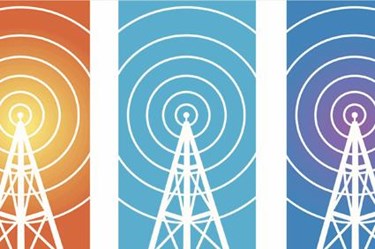The Week In 5G: First Implementable 5G NR Specification Heralds Full-Scale Deployment, White House Tags 5G As National Security Priority
By Jof Enriquez, Follow me on Twitter @jofenriq

The 3rd Generation Partnership Project (3GPP), the collaborative body that manages telecommunications and cellular standards, has completed the first implementable 5G New Radio (NR) specification. The approval of the first 5G NR standard under 3GPP Release 15 signals full-scale trials and commercial deployments as early as 2019.
Announced during the 3GPP Technical Specification Groups (TSG) Radio Access Network (RAN) Plenary Meeting in Lisbon, the release "is an essential milestone to enable cost-effective and full-scale development of 5G NR, which will greatly enhance the capabilities of 3GPP systems, as well as facilitate the creation of vertical market opportunities," stated a joint press release from the world's leading mobile telecommunications companies, which are pushing for accelerated 5G standards development and deployment.
Vodafone R&D head Luke Ibbetson noted that the standard was completed six months earlier than originally anticipated.
AT&T’s VP of Access Architecture and Analytics, Hank Kafka, said: "We’re proud to see the completion of this set of standards. Reaching this milestone enables the next phase of equipment availability and movement to interoperability testing and early 5G availability.”
The carrier, along with Qualcomm and Ericsson, has been planning since January 2017 to commence interoperability testing and over-the-air field trials as soon as the 5G NR specifications were approved. AT&T currently is awaiting permission from the Federal Communications Commission (FCC) to conduct 5G tests on the 3.5 GHz frequency band in Washington, D.C., starting from February 2018.
Of the newly released standard, Qualcomm Technologies EVP Cristiano Amon, said: “We look forward to continue working with our mobile industry peers to bring 5G NR commercial networks and devices in 2019 in smartphone and other form factors, for both sub-6Ghz and mmWave frequency bands, and to continue developing 5G technologies to connect new industries and enable new services and user experiences in the years to come.”
Ericsson CTO Erik Ekudden, added: “3GPP has done a tremendous job to complete the first 5G specifications according to industry demand and expectations. As a prime contributor to 5G standardization, Ericsson has worked with industry partners in the evolution of mobile technology to a global network platform for consumers and enterprises."
Qualcomm and Ericsson – in collaboration with AT&T, NTT DOCOMO, Orange, SK Telecom, Sprint, Telstra, T-Mobile US, Verizon, and Vodafone – also this week successfully showcased 5G NR multi-vendor interoperability of both sub-6 GHz and mmWave end-to-end 5G NR systems, during live demonstrations held in both the Ericsson Lab in Kista, Sweden and the Qualcomm Research lab in New Jersey, USA.
The over-the-air Interoperability Development Testing (IODT) was conducted for lower layer data connections operating at both 3.5 GHz and 28 GHz bands – the fundamental building blocks of 5G NR.
Ericsson also recently announced an equipment supply deal with Verizon for the mobile carrier's scheduled 5G home broadband deployment in five U.S. cities next year.
"Verizon is delighted that the 3GPP is moving quickly to release a global standard for mobile 5G," said Ed Chan, the company's Chief Technology Architect and Network Planning.
Ericsson also just inked a separate agreement to upgrade Deutsche Telekom's network to 5G.
Deutsche Telekom CTO Bruno Jacobfeuerborn, said: "We view both the Non-Standalone and Standalone modes of New Radio as equally important for the completeness of the 5G standard specification. This timely finalization of NSA is one important step on that journey and in the development of the 5G ecosystem."
Yang Chaobin, president of 5G product line in Huawei, which has been helping Deutsche Telekom test on 3.7 GHz spectrum band, said: "3GPP 5G NR standardization Phase 1 has been completed with great progress. Huawei will keep working with global partners to bring 5G into the period of large-scale global commercial deployment from 2018."
"As part of this coordinated effort, Intel will continue to play a leading role across the network, cloud and client devices; and with our first commercial 5G modems, we will help the ecosystem lead the way to 5G deployments worldwide," said Asha Keddy, Intel VP and General Manager, Next Generation and Standards.
3GPP members will finalize 5G standards during a meeting in September 2018 in Australia.
"When that vote happens, that's really the green light for the ecosystem to start moving to a commercial deployment of 5G," Rob Topol, general manager of 5G Business and Technology for Intel globally, told ZDNet.
The U.S. is among the leaders in the race to 5G roll-outs. Through a series of policy changes and spectrum auctions, FCC has opened up new high-band spectrum. President Donald Trump even highlighted 5G in the National Security Strategy.
"We will improve America’s digital infrastructure by deploying a secure 5G Internet capability nationwide," stated the report released this week.
